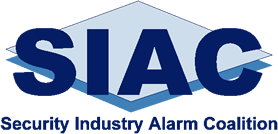There’s a longstanding debate in the United States regarding federal vs. state rights. Some might argue it’s a recent phenomenon, or that it stems from the Civil War. Actually, the tug between the two bodies of government began as soon as the first 13 states created the Union. Ever since, there have been arguments as to whether certain public policy issues should be driven by the federal government, or the states should have control.
In the security industry, one of the issues we deal with regularly is local alarm ordinances. SIAC’s mission to help improve the management of alarm systems nationally puts us at the forefront of many of these campaigns. Our goal is to drive consistency, reduce unnecessary calls for dispatch, and work cooperatively with officials to maintain police response. Repeatedly reworking ordinances jurisdiction by jurisdiction is one of the complicating factors we face.
As we accumulate data and experience in the various towns and cities across the U.S., we’ve been working to share those lessons in other communities. Once we achieve success, it becomes a model to use elsewhere.
Mostly, this works effectively. In the broader sense, for us to get even better, greater consistency and statewide standards become important. This speeds solutions, and simplifies the process of implementing language in ordinances.
Having a chief’s organization adopt a “model ordinance” accomplishes virtually the same outcome for the industry while still allowing local jurisdictions some final tweaking for local conditions – you might say the best of both worlds. This means success in terms of continuity and local flexibility, as well as for bringing the electronic security industry together with law enforcement.
For the really “high level” or what we consider “essential” best practices, like two-call verification or Enhanced Call Verification (ECV) and CP-01, having an actual state law requirement works well to ensure these get embedded in to the culture. Again, this only happens if the chiefs are in agreement.
These solutions to false dispatches deserve even wider acceptance and dissemination at the state level. The more we encourage our state elected officials to adopt our proven solutions, the more the companies in our industry will grow and prosper.
Go beyond your local city council, and get involved with your state association. Get to know your state elected officials, and start a dialogue on the issues affecting our industry. It will help your bottom line.
